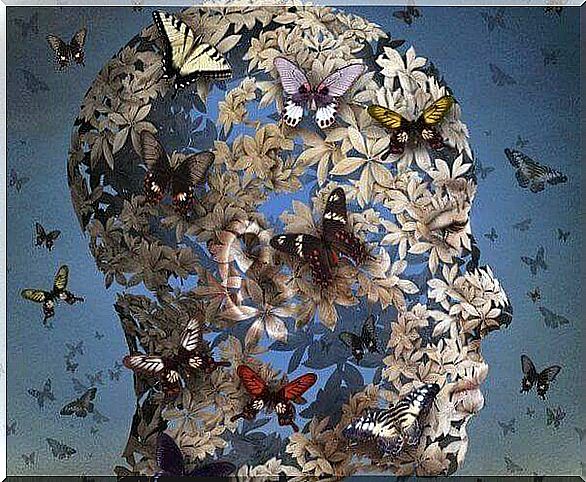The Role Of The Mind In Autoimmune Diseases

Autoimmune diseases continue to be a mystery to science. Their symptoms and development are known, but it is still uncertain what causes them and most of these diseases can be treated but not cured. There are hypotheses about this but none of them have been proven. What we do know, however, is that the mind plays an important role in these diseases.
There are autoimmune diseases that are relatively well known, such as rheumatoid arthritis, fibromyalgia, type 1 diabetes and multiple sclerosis. Others are less common, such as lupus erythematosus, autoimmune thyroiditis, Guillain-Barré syndrome, etc.
The puzzling thing is that autoimmune diseases are a result of the body attacking itself. It behaves as if its own antigens were invasive viruses and will therefore attack them. In other words, the body does not succeed in distinguishing between itself and foreign objects. This also occurs in people who are completely healthy and medical science still does not know why.
Autoimmune diseases and psychosomatic mechanisms

Science says that autoimmune diseases are the result of multiple factors in which genetics play an important role, but so far there is no real evidence that this is true. Instead, it has been proven that the mind plays an important role in association with this type of illness.
Autoimmune diseases are currently treated as psychosomatic. This means that they are diseases that originate in the mind and which then affect the body.
Some argue that they are the result of an inability to put emotions into words. Others believe they are a defensive response to an emotional breakdown. Others categorize them as “body ailments,” which originate in depression, or as a response to an insoluble conflict.
There are realities that exist in people’s minds and that find a way to express themselves through diseases in the body.
Emotions and autoimmune diseases

Autoimmune diseases trigger a mechanism of self-destruction. It is the body itself that does not recognize its own antigens and it therefore begins to attack itself. It is as if it experienced that what it has within it is threatening or dangerous.
The mind is very important in these processes. However, a new discipline has been created to deal with these diseases, and it is called psycho-neuro-immunology. So the fact that autoimmune diseases are not only chronic but also disabling can lead to a person’s death.
Studies have shown that people with these diseases often have high levels of depression, but this is not always obvious. In other words, there are those who seem to be happy and full of life, but who, deep within themselves, feel bad. These can be things that they do not even admit to themselves.
Another common phenomenon is the inability to recognize emotions, either because they over-analyze situations or because they are people who want everything under control and who experience emotions that threaten their autonomy.
Towards a solution…
Autoimmune diseases have a major impact on a person’s quality of life. They are usually painful, difficult to cope with and do not offer much hope for a solution. The worst thing is that those who suffer and go to the doctor to find answers often get answers that are not at all effective in treating their suffering.
Western medicine follows the notion that the mind and body are different realities and sometimes even contradictory. But it is becoming increasingly clear that health and well-being are integrated concepts, where the physical plane is as important as the mental plane.

The remedy for a person with an autoimmune disease is not always found in a pill, a vitamin or by any great doctor who will restore his health. It is not the case that the person should avoid these solutions, but psychotherapy should also be involved in the treatment.
All diseases consist of an emotional and a mental component, but when it comes to autoimmune diseases, this factor is extremely important. Resistance to treating the disease as a mental problem is certainly the reason why they can not find relief for their physical suffering.
A resistance that comes from the misconception that those who suffer from a disease based on a mental problem are not strong enough, and this is supported by an even more erroneous idea: that the pain has been invented by the patient.









